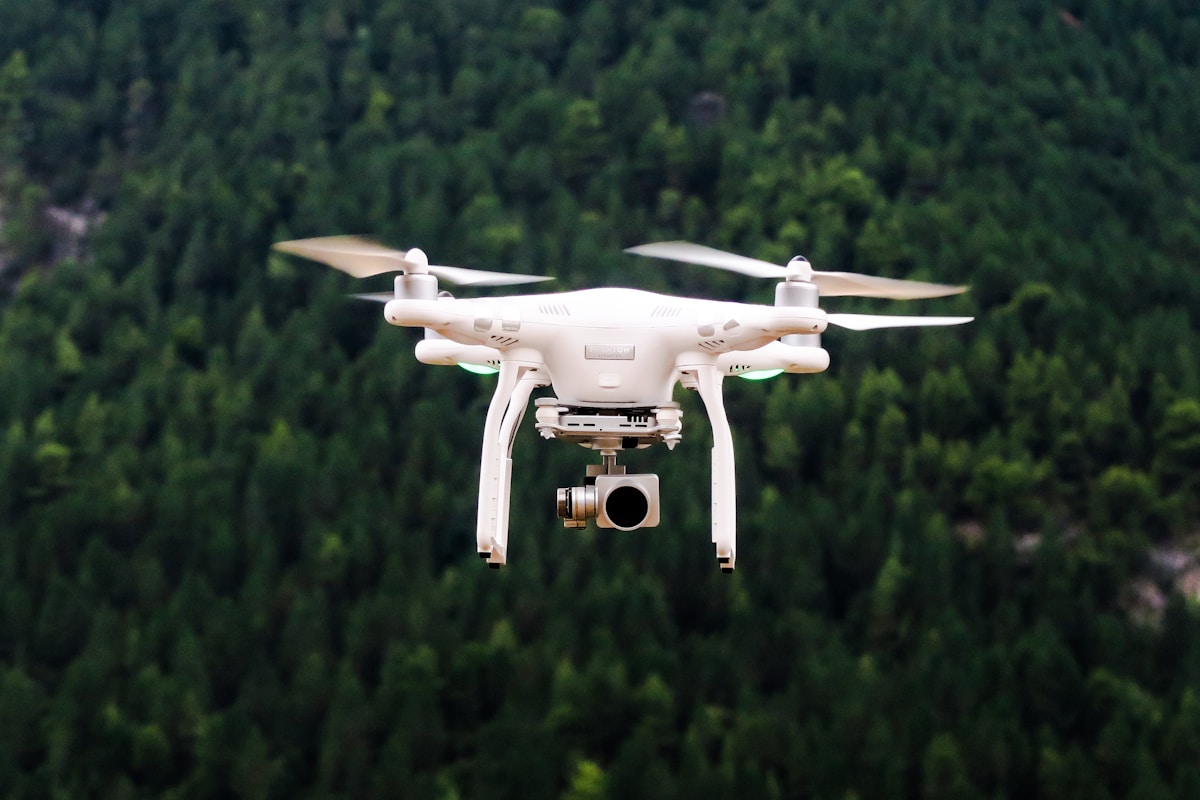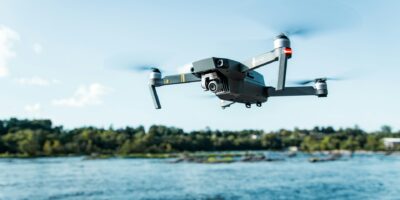Drone Safety
Drone Safety: A Guide for Enthusiasts
Drones have become a popular tool for both hobbyists and professionals. Their applications range from photography to agriculture. However, operating a drone comes with responsibilities. Ensuring safety is essential to avoid accidents and legal issues.

Understanding Regulations
Each country has its own set of rules for drone operation. In the US, the Federal Aviation Administration (FAA) governs drone use. Here are some key points to consider:
- Drones must be registered if they weigh more than 0.55 pounds.
- Fly below 400 feet to avoid manned aircraft.
- Maintain visual line-of-sight with your drone.
- Do not fly near airports, stadiums, or emergency response efforts.
- Respect privacy and do not spy on others.
Violating these rules can result in fines or legal action. Familiarize yourself with local regulations before taking your drone out for a flight.
Pre-Flight Checklist
Before launching a drone, conduct a thorough pre-flight check. This ensures everything is in working order and reduces the risk of a mid-air breakdown.
- Inspect the drone for any physical damage or loose parts.
- Ensure the battery is fully charged.
- Check the weather conditions; avoid flying in strong winds or rain.
- Calibrate the compass and GPS to ensure accurate navigation.
- Test the controls to ensure responsiveness.
Completing this checklist takes just a few minutes and can save you from potential headaches.
Safe Flying Techniques
How you handle the drone while it is in the air plays a crucial role in safety. Follow these techniques to ensure a smooth flight experience:
- Take off and land in open areas free of obstacles.
- Keep a safe distance from people, animals, and property.
- Monitor battery levels and return to base before it gets too low.
- Avoid flying above groups of people or busy streets.
- Stay alert for other aircraft and give them the right of way.
Practicing these techniques helps prevent accidents and malfunctions. It also shows respect for both the environment and those around you.
Emergency Procedures
Despite careful planning, emergencies can occur. Knowing how to respond quickly can prevent a minor issue from becoming a major incident.
- If the drone begins to behave erratically, immediately reduce altitude and prepare to land.
- In case of a total control loss, use the return to home function if available.
- If a collision is imminent, prioritize safety and crash in a safe area away from people and property.
- Have a fire extinguisher nearby in case of battery malfunctions.
- Report any serious accidents to the relevant authorities if required by law.
Preparation and practice are key to handling emergencies effectively.
Battery Safety
Batteries are one of the most critical components of your drone. Mishandling them can lead to serious consequences. Follow these tips to ensure battery safety:
- Store batteries in a cool, dry place, away from direct sunlight.
- Don’t overcharge or deplete them completely.
- Inspect batteries regularly for any signs of damage or swelling.
- Use the manufacturer’s recommended charger and follow the charging guidelines.
- Keep batteries away from flammable materials.
Proper battery maintenance extends the lifespan of your drone and minimizes the risk of dangerous incidents.
Privacy and Ethical Concerns
Respecting privacy and ethical considerations is an essential part of responsible drone usage. Here are some ways to fly your drone ethically:
- Do not capture images or videos without explicit permission.
- Avoid flying over private properties unless authorized.
- Be mindful of local communities and public spaces.
- Use drones for positive purposes, such as environmental monitoring or disaster response.
- Educate others about responsible drone usage and set a good example.
Being considerate of others’ privacy and adhering to ethical standards fosters a positive attitude toward drone use in general.
Maintenance Tips
Routine maintenance keeps your drone in top condition and ensures long-term reliability. Here are some tips:
- Clean your drone regularly, especially after flights in dusty or sandy environments.
- Tighten any loose screws and inspect for wear and tear.
- Update firmware and software to the latest versions for optimal performance.
- Lubricate moving parts as recommended by the manufacturer.
- Check motors and propellers for any signs of damage.
Implementing a regular maintenance schedule keeps your drone flight-ready and extends its operational life.
Learning and Skill Development
Improving your skills as a drone pilot can lead to safer and more enjoyable flights. Consider these methods for skill development:
- Enroll in a drone piloting course to learn advanced techniques and safety protocols.
- Join a local drone club or online community to exchange tips and experiences.
- Practice flying in various conditions to build competence and confidence.
- Stay updated on the latest drone technology and industry trends.
- Use flight simulators to practice maneuvers without risking your drone.
Continuous learning not only enhances safety but also enriches your overall flying experience.
Special Considerations for Commercial Drone Use
Using drones for commercial purposes requires additional considerations and adherence to stricter regulations. Here’s what you need to know:
- Obtain the necessary certifications, such as the FAA’s Part 107 license in the US.
- Carry appropriate insurance to cover potential damages or liabilities.
- Conduct thorough risk assessments before each project.
- Maintain detailed logs of flights and maintenance activities.
- Ensure your drone and equipment meet professional standards.
Commercial drone operations demand higher standards of safety and compliance, ensuring protection for both the pilot and the clients.
Environmental Awareness
Drones can impact the environment in various ways. Being environmentally conscious helps minimize negative effects:
- Fly responsibly to avoid disturbing wildlife or damaging natural habitats.
- Follow the principles of Leave No Trace when operating in natural areas.
- Dispose of old batteries and parts through proper recycling methods.
- Support conservation efforts by using drones for environmental monitoring.
- Stay informed about the ecological impact of drone use in different settings.
Environmentally responsible drone practices contribute to sustainable and respectful use of technology.
Weather Considerations
Weather conditions can significantly affect drone performance and safety. Here’s how to navigate weather challenges:
- Avoid flying in heavy rain, snow, or fog to prevent water damage and visibility issues.
- Monitor wind speeds; strong winds can make controlling the drone difficult.
- Be cautious of temperature extremes that can affect battery performance.
- Use weather forecasting tools to plan safe flight times.
- Recognize signs of changing weather conditions and be prepared to land safely.
Understanding and planning for weather conditions ensures safer and more predictable flights.
Insurance for Drone Operators
Having insurance provides a safety net in case of accidents or unexpected events. Consider the following types of insurance:
- Liability insurance to cover damages or injuries caused by your drone.
- Hull insurance to protect your drone itself from damage or loss.
- Business insurance for commercial operators to cover broader risks.
- Event-specific insurance for temporary coverage during special projects.
- Personal injury insurance to cover medical expenses if you’re hurt while flying.
Insurance delivers peace of mind and financial protection, allowing you to focus on flying safely.
Legal Considerations
Legal issues can arise from improper drone use. Knowing the legal landscape helps you avoid trouble:
- Understand airspace classifications and avoid restricted zones.
- Comply with local and national regulations regarding drone operations.
- Obtain any necessary permits for special flight areas or purposes.
- Be aware of data protection laws when capturing and storing footage.
- Consult legal experts if in doubt about complex situations.
Staying on the right side of the law makes your drone operations smoother and more sustainable.


